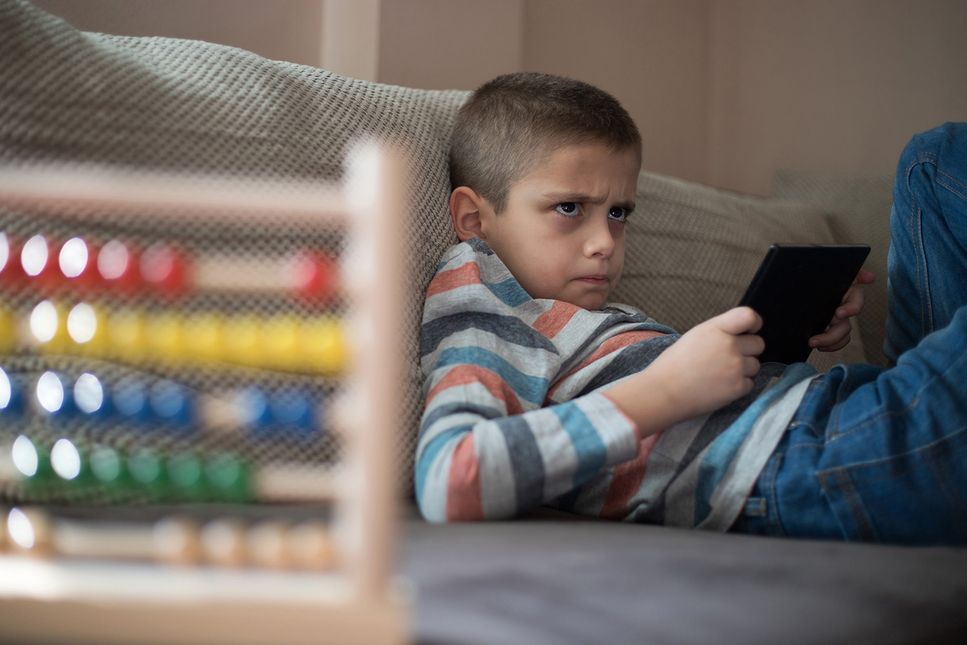Dec16
Math Anxiety in Children with Dyscalculia

Children with dyscalculia often suffer from mathematical anxiety. In today’s post we explain what math anxiety is, how it is related to dyscalculia and how we can support children who suffer from it.
Emotions and Mathematics
Emotions related to mathematics can vary widely, as mathematical activities can provoke both positive and (more frequently) negative emotions. For example, positive emotions, such as excitement or satisfaction, can be experienced when solving mathematical problems or learning new concepts. On the other hand, lower performance in mathematical tasks can cause frustration, low self-esteem and anxiety.
Fear of Mathematics
Maths anxiety is a specific form of anxiety that interferes with learning and using mathematical skills. People with math anxiety may experience fear, worry or stress in situations that involve the use of mathematics, such as participating in math class or taking math assessments or tests. And it is not unique to students who are not good at mathematics, as anyone can suffer from it.
Maths anxiety is a disorder that can affect children and adults. According to Ashcraft and Moore (2009) 17% of the general population suffers from math anxiety. Although it is difficult to determine the exact incidence of mathematics anxiety in children, some studies suggest that it may affect between 5% and 10% of school-age children. What is clear is that levels of mathematics anxiety increase with age as children move from childhood to adolescence. In fact, two-thirds of 11-year-olds rate maths as their favourite subject, but only a fraction of 16-year-olds does the same.
Maths Anxiety in Children with Dyscalculia
Dyscalculia is a learning disorder that affects a person’s ability to perform mathematical calculations and to understand basic mathematical concepts. Unlike children without learning disabilities, in children with dyscalculia we can find anxiety about mathematics as early as the first years of primary school.
In the case of people with dyscalculia, there is an objective difficulty in mathematical skills, and the gap between the student’s ability and school standards is sufficient to generate anxiety. Children with dyscalculia are usually aware of their inabilities, and this can lead to anxiety in mathematical situations. This anxiety, coupled with their learning difficulties, leads to even worse performance. In other words, mathematics anxiety accentuates the problem of dyscalculia, hence the need to address emotional aspects in the intervention of this disorder.
How to Support Children with Maths Anxiety
To reduce maths anxiety in children, it is important to take a child-centred approach and focus on the child’s emotional well-being. Some ways to help reduce maths anxiety in children may include:
- Providing a positive and nurturing learning environment that fosters confidence and growth.
- Teaching coping skills to help children manage anxiety and stress in math-related situations.
- Providing support and positive reinforcement to help children develop a positive attitude towards mathematics.
- Avoid using external punishments or rewards to motivate mathematical learning, as this can increase anxiety and reduce the child’s interest in mathematics.
- Help children develop mathematical skills gradually and progressively, rather than pushing them to perform mathematical tasks that are more difficult than they are ready for.
If a child is experiencing maths anxiety, we recommend seeking professional help to obtain an appropriate diagnosis and treatment.
The Smartick dyscalculia test provides information about the risk of having dyscalculia. Do not hesitate to complete it to find out how to proceed based on the results. It is free of charge and includes a comprehensive report, sent by email, with a risk assessment (to be confirmed by a professional), a detailed profile of the child in different mathematical areas and information on how to interpret the results.
- Dyscalculia Exercises in PDF to Work on Place Value - 28 de September de 2023
- Activities to Work On Dyscalculia: Board Games - 5 de May de 2023
- Dyscalculia Treatment: LEGO building blocks - 19 de April de 2023

